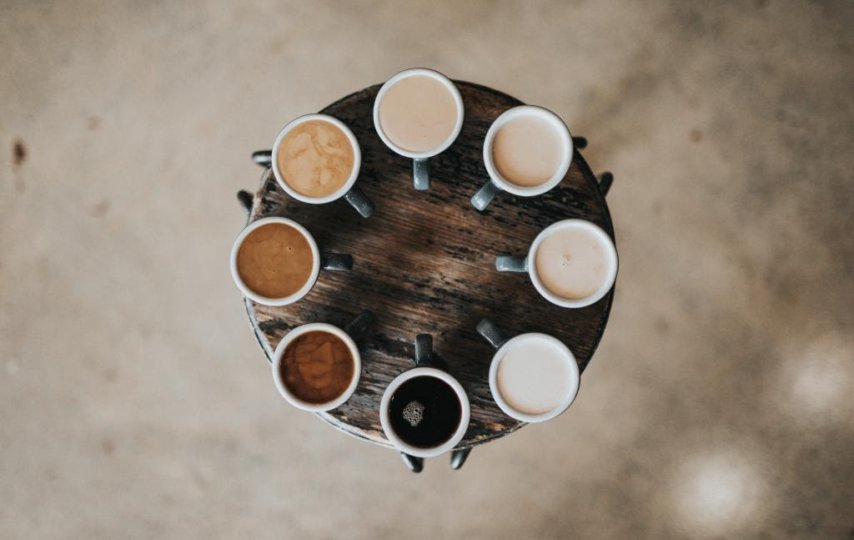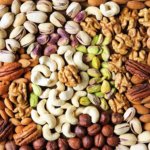How many people, including yourself, do you know that simply need caffeine to get through the day? Billions of people drink beverages like coffee, tea, and various types of soda that contain caffeine on a daily basis. While we are all aware of some of its benefits such as boosting our energy, we are often not familiar with other facts when it comes to this chemical. To learn more things about caffeine and see in which additional ways it can impact your life, keep on reading.
It affects people in different ways
Maybe you are a huge coffee lover and don’t understand how your best friend is able to function without several cups a day. Well, it’s important to keep in mind that caffeine is not processed in the same way by everyone. Maybe your friend tried it and realized that it simply does not suit them. For example, how caffeine is processed in the body is influenced by multiple factors such as age, race, and sex. Therefore, caffeine affects men and women differently and there is evidence that men metabolize caffeine slower than women while women experience more benefits from it. Then, caffeine is metabolized slower by people of Asian backgrounds as opposed to other racial backgrounds. What is more, individuals that smoke process caffeine twice as quickly as people that don’t smoke. So, the next time someone says that they just don’t need caffeine to operate on a daily basis, don’t be so surprised.
Most people consume it daily
On the other hand, it might be possible that your friend is not even aware of consuming caffeine. Seeing as how it is found in a variety of beverages and even foods, it should come as no surprise that ninety percent of people consume it during the day, in one form or another. In terms of coffee, around ten million tons of coffee is used every year. Scandinavian countries are leading when it comes to consumption per capita, as Finland, Sweden, and Iceland have topped the chart in 2016.
Caffeine takes only ten minutes to kick in
If you are a regular coffee drinker, you are probably aware of how quickly caffeine can kick in. However, people who don’t drink it that often are surprised to find out that it can make an impact in as little as ten minutes, depending on the person. For some, it takes 20 to 30 minutes. In any case, from the first sip you take, caffeine will reach its peak of effectiveness in about 45 minutes. Some people recommend taking a quick nap straight after drinking a caffeinated beverage to maximize its benefits. That way, you will lower your adenosine count and it will not fight with the caffeine for the receptors in your brain. The effects of caffeine can be felt for three to six hours while your system will be clear of it in about 12 hours.
We should not drink it the first thing in the morning
Despite the fact that most of us wake up needing caffeine instantly, the truth is that we should not drink coffee right away. Here’s why – your cortisol levels peak about half an hour after waking up and mixing this with caffeine can make the latter less effective. So, to make the most of caffeine each time you drink it, you should move your coffee/tea time to mid-morning and mid-afternoon. Seeing as how we are usually at work at that time, we need to rely on quality bean to cup coffee machines to get our dose but if there are none at your place of work, ask your employer to install a few.
You can start to depend on it
Not to scare you but you can develop a dependency on caffeine over time. It binding to the adenosine receptors results in the brain making more of them over time. This process leads to a change in the chemistry of the brain, which in turn means that you need more caffeine if you want to create the same effects.
There is a limit to how much you should take
Even though we can develop a tolerance towards caffeine, there is a limit of how much we should intake on a daily basis. According to Mayo Clinic, you should not go over 400 mg per day as it can have detrimental effects. Around 300 mg is the average per person but some heavy caffeine users reach even 600 mg a day. Insomnia, anxiety, and fatigue are just some of the side effects of having too much caffeine so make sure you don’t go overboard.
It can be toxic in excess amounts
What is more, excess amounts of caffeine can even lead to death. While the exact amount is not entirely clear, it is estimated that around 75 to 100 cups of coffee in a relatively short time can have deadly consequences for an adult.
Powdered caffeine is very dangerous
Caffeine can also be found in powder form. This is the most dangerous form of caffeine as it is almost 100 percent caffeine. Just one teaspoon is the equivalent of 26 cups of coffee. At least a couple of deaths have been linked to this substance.
Withdrawal symptoms are common
Seeing as how caffeine is considered to be a drug, it should come as no surprise that it affects your central nervous system, just like other drugs. This also means that you can develop a dependency and can experience withdrawal symptoms when you decide to stop taking it. Fortunately, these symptoms will disappear over time without you having to treat them.
It’s not completely off the table during pregnancy
You’ve probably heard in multiple places that caffeine is a big no-no during pregnancy. However, this is not completely true. Expecting moms can drink caffeine but in moderation, of course. If you’re pregnant, ask your doctor first although 200 mg of caffeine a day should not pose any concerns for you or your baby.
Most kids consume it every day
In the U.S., nearly 73 percent of kids consume caffeine in some form on a daily basis, a 2014 study found. Energy drinks are not an uncommon choice among young children and they contain way more caffeine than they can tolerate. For example, a kid older than six can take about 100 mg a day and younger kids even less. However, seeing as how energy drinks reportedly contain more caffeine than they put on their label, it’s led to many emergency room visits as kids simply intake more caffeine than they can handle.
Energy drinks are not the best source of caffeine
In addition to not showing the real numbers on nutrition labels, the mix of ingredients that energy drinks provide us with is not the healthiest. These are full of sugar and artificial colors as well as other ingredients that many of us don’t quite understand, like L-carnitine and taurine. If you are looking for a way to add caffeine to your day, there are much better sources you can turn to.
Not every coffee has the same amount of caffeine
When on the topic of caffeine sources, keep in mind that not every cup of coffee is created the same. For one, light roast coffees have a bit more caffeine than dark roasts. This is due to the fact that lighter roasts are exposed to less heat. That being said, you will not notice a big difference. On the other hand, while espresso is dark, it contains the most caffeine per ounce. These beans are not different in any way but the way this beverage is prepared is what makes it unique. Finally, brand coffees also have different levels of caffeine in them. For example, don’t expect the coffee at Starbucks to have the same amount as that in McDonald’s.
Over 60 plants contain caffeine
In case coffee is not your favorite source of caffeine, you’ll be glad to hear that this substance is naturally found in over 60 plants. While coffee beans and tea leaves are some of the most famous, it is also present in cocoa beans, guarana berries, yerba maté, the yaupon holly, and guayusa, among other plants. Therefore, if in need of some caffeine, try dark chocolate made from cocoa beans.
Plenty of foods are infused with this substance
In addition to being present in many plants, caffeine is also added to various products. You might not even be aware that you are consuming it as it is not required to be on the nutrition label by the U.S. FDA. Everything from breath fresheners and sunflower seeds to coffee-flavored ice cream and beef jerky can be infused with caffeine.
Caffeine can be found in pain relievers
Taking into account the fact that caffeine can help alleviate pain, it’s no wonder that many pain relievers contain this substance. While they can be of great assistance, keep the amount of caffeine in mind. Two tablets can easily have as many milligrams of caffeine as a cup of coffee. If you drink tea or coffee in addition to taking some pills, you can easily hit the recommended caffeine limit of 400 mg. Take care that you don’t consume way too much.
This substance comes with many benefits
Having covered the various ways of consuming caffeine and the side effects you might expect, we now have to talk about all the benefits that coffee has on your health. For example, did you know that coffee can strengthen your heart, increase life expectancy, and decrease the risk of depression? Pretty great seeing as how all you have to do is drink a cup or two of nice java every day, right? What is more, it also decreases the risk of diabetes, protects against Alzheimer’s, and relieves the symptoms of Parkinson’s disease.
It can help boost your mood
We previously mentioned that drinking coffee lowers the risk of developing depression. This is because caffeine blocks adenosine and stimulates the release of dopamine. You are probably aware that dopamine is a chemical that makes you feel happy and less sluggish.
It has a positive effect on your memory
Research at Johns Hopkins University has found that individuals who were given caffeine were able to better recall a series of images they were shown 24 hours earlier. So, if you want to boost your long-term memory, you don’t have to drink coffee if that is not your preferred beverage – you can also turn to iced black tea, for example.
Use it to improve your workout performance
Another thing caffeine can do for your body is increase its adrenaline levels. You can use this boost when you need some motivation at the gym. Have a cup of tea or coffee 30 minutes before your workout session and it can improve your performance.
It can lead to weight gain
While caffeine-laced green tea is used to help with weight loss, too much caffeine can have the opposite effect. Huge amounts of caffeine boost cortisol which is one of the biggest culprits when it comes to weight gain. So, be careful if you’re looking to lose weight.
Caffeine can help you poop
Have you noticed that you need to use the bathroom after drinking coffee? Well, this is due to the fact that caffeine promotes better digestion and boosts your metabolism. It promotes gastrin, a hormone that increases colonic activity. However, as is the case with everything, you should not go overboard as it can lead to increased urine production, diarrhea, and ulcer formation.
It has benefits for skin and hair
Caffeine is also being used in various cosmetic products as it can help your skin and hair. For instance, it can decrease puffiness, increase blood circulation in the skin, dissolve fat, and reduce cellulite as well as help with collagen production. On the other hand, caffeine can also restore hair growth, make the hair soft and shiny, and get rid of gray hairs naturally.
Caffeine has so many purposes and benefits so even if you don’t like coffee, you will surely find a way to consume it on a daily basis and experience all it has to offer.













